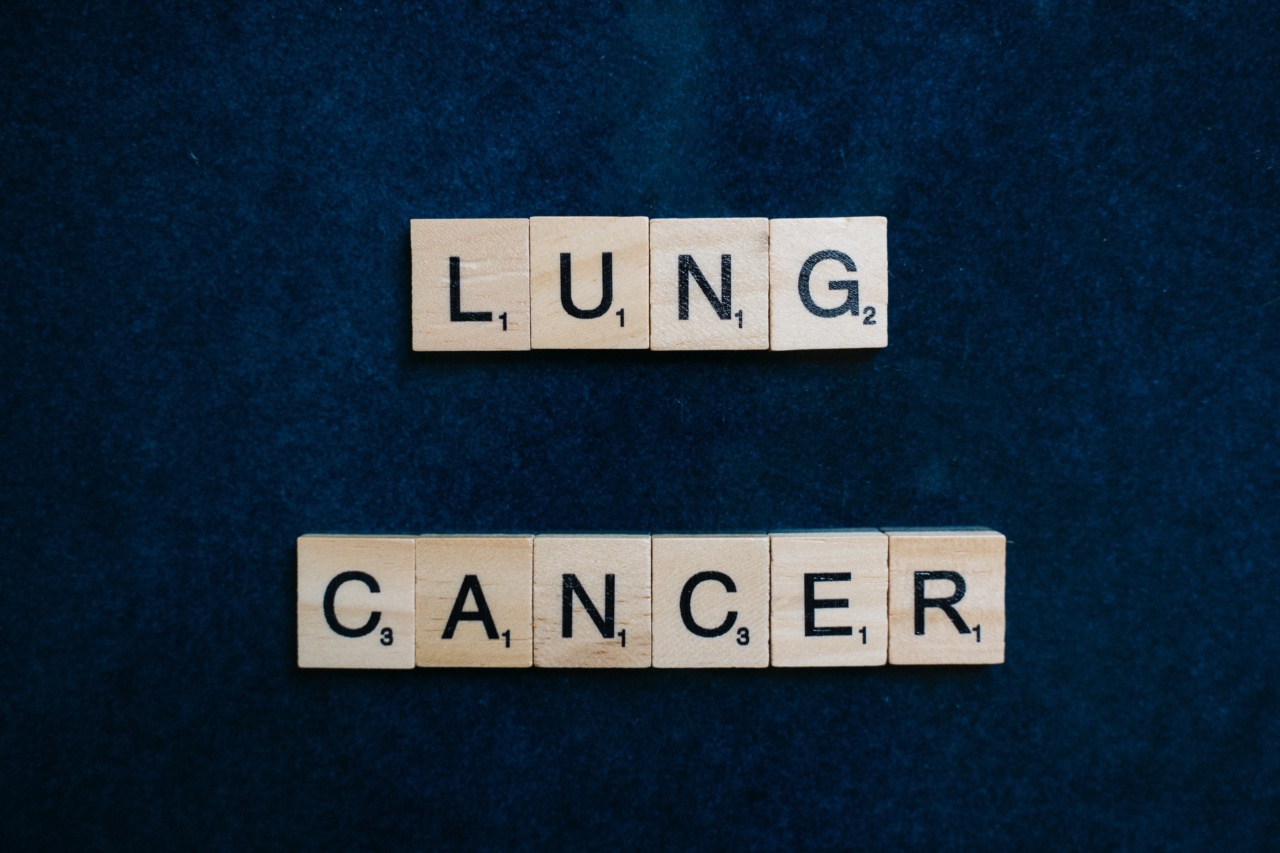Lung cancer is a devastating disease that affects millions of people worldwide. While smoking is the primary cause of lung cancer, there are other factors, such as certain beverages, that can contribute to the development of this deadly condition.
In this article, we will explore some beverages that may increase the risk of lung cancer and discuss the potential mechanisms through which they impact respiratory health.
Coffee and Lung Cancer
Coffee is one of the most widely consumed beverages globally, known for its stimulating properties. However, excessive consumption of coffee has been linked to an increased risk of lung cancer.
According to recent studies, the substances produced during the roasting process of coffee beans, like acrylamide, can be carcinogenic. Acrylamide has been found to damage DNA and potentially lead to the development of cancerous cells in the lungs, including lung cancer.
Alcohol and Lung Cancer
Excessive alcohol consumption has long been associated with various health problems, including liver disease and certain types of cancer.
While the primary correlation between alcohol and lung cancer is often attributed to their synergistic effects with smoking, studies have suggested that alcohol may have independent carcinogenic properties. Ethanol, a component present in alcoholic beverages, can metabolize into acetaldehyde, a compound known to cause DNA damage and increase the risk of developing lung cancer.
Sugary Drinks and Lung Cancer
Sugary drinks, such as soda and other sweetened beverages, are a common part of many people’s diets.
However, consuming excessive amounts of sugary drinks has been associated with numerous health issues, including obesity, diabetes, and even cancer. Some studies have found a potential link between sugary drinks and lung cancer, as the high sugar content can lead to insulin resistance and chronic inflammation, both of which are factors that contribute to cancer development.
Energy Drinks and Lung Cancer
Energy drinks have gained immense popularity in recent years, particularly among young adults.
These beverages are often consumed for their stimulating effects, but they can also pose health risks, including an increased likelihood of developing lung cancer. Energy drinks are commonly packed with caffeine, sugar, and various other additives. Regular and excessive consumption of energy drinks may lead to chronic inflammation and oxidative stress in the lungs, thereby promoting the growth of cancerous cells.
Soda and Lung Cancer
Soda, or carbonated soft drinks, is loved by many but loathed by health-conscious individuals. The carbonation process in soda produces carbonic acid, which can decrease the levels of oxygen in the blood.
This reduction in oxygen can cause stress to the body’s tissues and organs, including the lungs. Furthermore, the high sugar content and other harmful additives in soda can contribute to lung inflammation and potentially increase the risk of developing lung cancer.
Artificially Sweetened Beverages and Lung Cancer
Artificially sweetened beverages, often marketed as healthier alternatives to sugary drinks, have been under scrutiny regarding their potential health risks.
While they may offer fewer calories, studies have suggested a potential connection between these beverages and lung cancer. Some artificial sweeteners, such as aspartame, can produce toxic byproducts when metabolized, which could promote DNA damage and increase the risk of cancer, including lung cancer.
Processed Fruit Juices and Lung Cancer
Fruit juices are commonly perceived as a healthy choice, but not all fruit juices are created equal. Processed fruit juices, particularly those containing added sugars and preservatives, may pose health risks.
High levels of fructose, found in processed fruit juices, have been linked to an increased risk of various cancers, including lung cancer. Additionally, certain preservatives used in these beverages may have carcinogenic properties and contribute to the development of lung cancer.
Tea and Lung Cancer
Tea is often praised for its health benefits, mainly attributed to its high content of antioxidants. Regular consumption of tea has been associated with a reduced risk of certain cancers. However, when it comes to lung cancer, the evidence is mixed.
Some studies have suggested that drinking hot tea, particularly when combined with smoking, may increase the risk of developing lung cancer. Nevertheless, further research is needed to establish a conclusive link between tea consumption and lung cancer.
Red Wine and Lung Cancer
Red wine, when consumed in moderation, has been associated with certain health benefits, thanks to its antioxidant compounds like resveratrol.
However, excessive and heavy drinking of any alcoholic beverage, including red wine, can increase the risk of developing lung cancer. The presence of ethanol and its metabolites in red wine, as mentioned earlier, can damage DNA and contribute to the progression of lung cancer, especially when combined with smoking.
Green Smoothies and Lung Cancer
Green smoothies, made from a combination of leafy green vegetables and fruits, have gained popularity for their perceived health benefits.
While consuming fresh greens and fruits is generally considered healthy, the overall impact of green smoothies on lung cancer remains uncertain. However, it is important to avoid using ingredients that are contaminated with pesticides or preservatives, as they may have adverse health effects in the long term.
Conclusion
It is crucial to be aware of the potential risks associated with certain beverages and their impact on lung cancer.
While these beverages alone may not directly cause lung cancer, their consumption can contribute to other risk factors or promote an environment favorable for the growth and progression of cancerous cells. To reduce the risk of developing lung cancer, it is advisable to consume these beverages in moderation and focus on a healthy, balanced diet along with regular exercise.
Additionally, seeking medical advice and undergoing regular screenings can help detect lung cancer at early stages, improving treatment outcomes and overall prognosis.





























